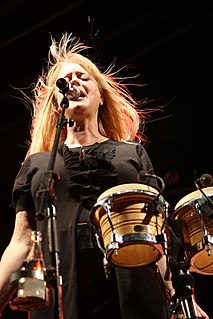Top 1200 Dining Rooms Quotes & Sayings
Explore popular Dining Rooms quotes.
Last updated on April 16, 2025.
When you have to negotiate for survival, and you have to know how to read rooms, and you have to know who the bad guys in the rooms are - who has the gun in their pocket, who's just going to brandish it, and who's going to actually pull the trigger. So I think that's just a natural instinct that comes with coming from where I come from.
People have started consuming very privatised content. Initially, it used to be community viewing at the cinema, where you look forward to ice cream in the interval and then on to your dressing and dining rooms. Today, it's gotten so privatised that you're watching things on your mobile phone. That is a massive amount of change.
Now, in the sixties we were naive, like children. Everybody went back to their rooms and said 'We didn't get a wonderful world of just flowers and peace and happy chocolate, and it won't be just pretty and beautiful all the time,' and just like babies everyone went back to their rooms and sulked. 'We're going to stay in our rooms and play rock and roll and not do anything else, because the world's a nasty horrible place, because it didn't give us everything we cried for.' Right? Crying for it wasn't enough.
Most people would say they live with an internal angst that they can't always put their finger on. This is because the Internet has changed our very way of being in this world, compelling us to be perpetually "on" - from our cars to our computers, our tablets to our smartphones, our desks to our living rooms or dining tables, our churches to our libraries to our schools.
Ping-pong was invented on the dining tables of England in the 19th century, and it was called Wiff-waff! And there, I think, you have the difference between us and the rest of the world. Other nations, the French, looked at a dining table and saw an opportunity to have dinner; we looked at it an saw an opportunity to play Wiff-waff.
I think the beauty of chat rooms is that you can have your anonymity of course, and you can choose to be raunchy and sexy and bold. Or you can actually go into certain chat rooms and maybe have an incredibly soulful, meaningful conversation that will change your life or change the other person's life.
The tourist may complain of other tourists; but he would be lost without them. He may find them in his way, taking up the best seats in the motors, and the best tables in the hotel dining-rooms; but he grows amazingly intimate with them during the voyage, and not infrequently marries one of them when it is over.
Don't think about how your characters sound, but how they see. Watch the world through their eyes - study the extraordinary and the mundane through their particular perspective. Walk around the block with them, stroll the rooms they live in, figure out what objects on the cluttered dining room table they would inevitably stare at the longest, and then learn why.
I've gone to big stadium rock concerts at some artist's invitation, and there's this invariable, fascinating and rather sad situation of concentric circles of availability. There are Green Rooms within Green Rooms literally within Green Rooms. There are seven or eight degrees of exclusivity, and within each circle of exclusivity, everyone is so happy to be there, and they don't know that the next level exists.
If nations always moved from one set of furnished rooms to another -- and always into a better set -- things might be easier, but the trouble is that there is no one to prepare the new rooms. The future is worse than the ocean -- there is nothing there. It will be what men and circumstances make it.
If I had millions and millions and millions of dollars, I'd leave a large portion to the 42nd Street library. That's why - that was my hangout, the reading rooms, the North and South reading rooms. I'd go there, and my God, I couldn't believe I had access to all of these books. That was my university.
The earth's biosphere could be thought of as a sort of palace. The continents are rooms in the palace; islands are smaller rooms. Each room has its own decor and unique inhabitants; many of the rooms have been sealed off for millions of years. The doors in the palace have been flung open, and the walls are coming down.
























































